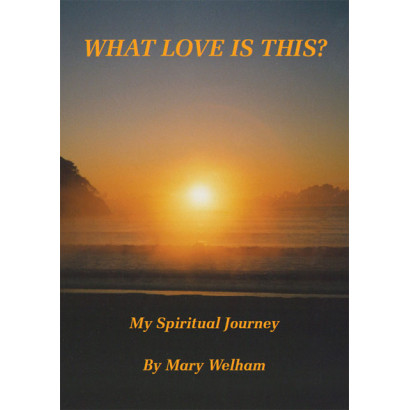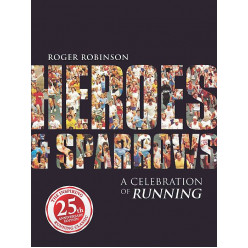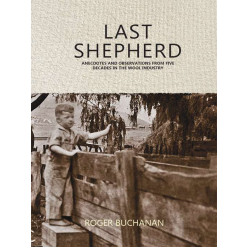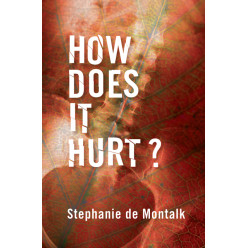What Love is This?
Immediate Download
Download this title immediately after purchase, and start reading straight away!
View Our Latest Ebooks
Explore our latest ebooks, catering to a wide range of reading tastes.
Foreword by Brian Jenkins:
When Mary became a follower of Jesus in 1974 at the age of 44 years, she gave Him her all. No half measures. That’s not Mary’s style. She put everything into her new life in Christ. She was as open and honest with Him, and herself, as she could possibly be.
While she embraced the teachings of Christianity, she wanted more. She deeply desired to get to know the Teacher. Like any follower of Jesus she had to learn how to relate to Him, and how He relates to us. Her book tells of her journey – her journey to Him, and with Him, as He became her guide and companion through life.
Over the years Mary has applied to her everyday life the great truths of the Christian faith as Jesus has shown them to her, through the circumstances of her life, through His living Word – the Bible, and through her life in the Spirit.
Down to earth, yet deeply spiritual, Mary’s story, later Mary herself, is testimony to what can happen when we allow God’s great love to touch our lives. No wonder she was so acceptable and effective on Parish Missions with Church Army. She has a great ability to relate to ordinary people and to relate them to God.
I believe her book is a spiritual classic, her story a help and encouragement to others who put their “hand in the hand of the Man from Galilee”.
From: What Love is This?, by Mary Welham
Chapter 1
Gazing down at that tiny scrap of humanity my father shook his head, “You’ll never rear this one Ivy!” he said. Such a very little baby, ‘the scrapings of the pot,’ as a family friend would later say. The chances of survival were slim, but eighty years later here I am to tell my story.
In 1930 the year of my birth the world was in the deepest depression ever recorded in human history. Throughout New Zealand men tramped the roads desperate for work, often travelling many miles from home, willing to do anything, just to get enough money to feed their families. The very air we breathed was filled with a sense of despair.
Because our family was farming in the Waikato County we were better off than many city dwellers. At least we could grow our own fruit and vegetables, had milk and butter and cream from the cows, all the meat we needed, our hens produced eggs and when they stopped laying we could always eat them. Everything considered, we had it pretty good. Even so life was a struggle. The price of butterfat was very low, also the returns from beef and mutton were not good. People did not have enough money to purchase the food we produced. It was a vicious cycle. Many times there would be a knock on the door but before it was ever opened we knew that there would be another man asking for work. It was so hard to turn them away. Mum told us how she often fell to her knees praying that there would always be enough in the cupboard to share with others, and her prayers were answered, for even if we were unable to give them a job they never left without at least something in their hands.
Our farm situated near Te Kauwhata was very beautiful with rolling hills, fertile valleys, clean running streams to water the stock, an ideal place to raise children of which we were many. I was born into a family of five girls and two boys. Mum and Dad must have had a love of flowers because my eldest sister was named Rose, then there was Madge, Violet Daisy - who I believe got her name from Dad’s two favourite cows – followed by Janet Virginia, Lillian, Jean and last of all me. They named me Mary. The two boys Jack, the second eldest, and Ernest born between Janet and Lillian were well outnumbered.
When Rose was four and a half years old she, with her young aunt, was taking care of her little sister Madge, who was then three years old. They were playing in a paddock next to a cornfield where a big roller was working. Madge wandered off climbing through the fence right into the path of the roller. The horrified driver was unable to stop in time and the big machine struck the tiny child and tossed her aside like a rag doll. She did not seem to be badly injured, so thinking perhaps there was just bruising, they tenderly picked her up and took her home to our mother. But there must have been internal injuries because that evening as Mum was drying her after her bath little Madge died in her arms. Until the day of Mum’s death our sister lived on in mother’s heart. Whenever she spoke of Madge it seemed as if she was still with us. And in a way she was because she lived in Mum’s heart, the little three year old whom she loved so much. Mum used to say she was a little angel who had been given to her as a special blessing so in that way she was able to let her go back to where she really belonged.
But it was all so sudden, so tragic, one moment there she was eager, full of life; then she was gone with only memories to hold in your arms. With Rose and Myra, the young aunt, there was also guilt, terrible, unnecessary guilt. The accusing thoughts would come again and again, “It’s all your fault! If you had been more watchful it would never have happened. Madge would not have died. It’s your fault! Your fault!” The accusations echoed in their hearts through the years. The pain they all carried made a rift between Mum and her little sister Myra, who had always been her favourite. She was so precious to Mum that she gave her, her own special name; she named her Pearl. Their relationship would never be the same again. For Rose the trauma she went through affected her whole life. Blaming herself, for her sister’s death, looking after children became a nightmare. We, her much younger brothers and sisters thought she was just a bad tempered old witch, we did not know the fears hidden inside her.
The advent of my birth brought our numbers up to eight living children. With so many mouths to feed and clothe I don’t imagine my father was overjoyed at the news of my coming birth. He was not a well man and at such a time as this it was hard enough to make ends meet, without another child to care for. It was also difficult for my sister Rose who, being eldest in the family, carried a great deal of responsibility in caring for the children, who kept coming and coming. She thought they would never stop. In later years she would tell me the story of Mum’s big apron. Rose had a horror of aprons, she just hated wearing them, because her memory picture of Mum putting on THE BIG ONE meant only one thing, there was another baby on the way. For the rest of her life Rose would never wear those detestable things.
All through my life I have known my mother loved me. I’m sure in my heart that even though I was number nine; she accepted her pregnancy as only a mother can. A baby was a baby, a child to be loved, part of her to be nourished from her own body, to be carried in her womb until the appointed time for its birth. So for nine months I was safe from the trauma of the world, protected and nourished. But the time came when I must leave my cosy place and enter into that big wide world which was not exactly preparing a welcome mat.
At the time of my birth my father had already contracted the disease that would take his life 15 months later. Because he did not feature in my life at all I have no conscious memory of him. There were times in my growing years when I felt the loss very much. I remember feeling different from other children because they had fathers to protect them, to stick up for them, while I had to fight my own battles. I couldn’t say magic words, “I’ll tell my Daddy on you!” There were many times in my life when I experienced such a longing to know him. My sister Vi, for whom my father was a very special person, had a large framed coloured photo of him hanging on her bedroom wall. I have a distinct memory of standing in front of the photo with tears streaming down my face crying out, “I want my Daddy!” but that would not bring him back. The space inside me, just specially made for fathers, was to remain empty.
Because my father died when I was so young, I did not have the opportunity to show him just how wrong he was in his prediction that I would not live. Perhaps when he spoke those words my fighting spirit was activated. That tiny baby registered the prediction and said to herself, “You wanna bet!” When I look back I think I must have inherited the will to win from my little mother. Hardly five feet tall, left with a farm to manage and eight children to bring up, even though it must have seemed a daunting task, she picked up the challenge because it was there, same as Edmund Hillary. When asked why he climbed Mount Everest, “Because it was there!” was his reply.
I was not in my mother’s shoes when Dad died, but I can imagine how the task facing her must have looked enormous. Having to take responsibility for the farm, for the workers and the children, making all the decisions when all you have been used to was responding to someone else’s. Apparently Dad did all the shopping, often bringing home bolts of material for mother to sew clothes for us. I think he must have bought things by bulk to save money. We must have looked strange, all decked out in the same material. Our flour came in large cotton bags and I distinctly remember wearing panties made from washed flour bags. We literally knew how to live on the smell of an oily rag.
However, Mum was not lacking in courage, there were decisions to be made. She must do what she felt was best for all concerned. With much heartache, considering all aspects of the situation, the reality of trying to run a farm without the strength of a man seeming an impossible task, it was decided to sell up everything and move to Auckland, where it was hoped the older girls would find work and the younger be placed in good schools.




